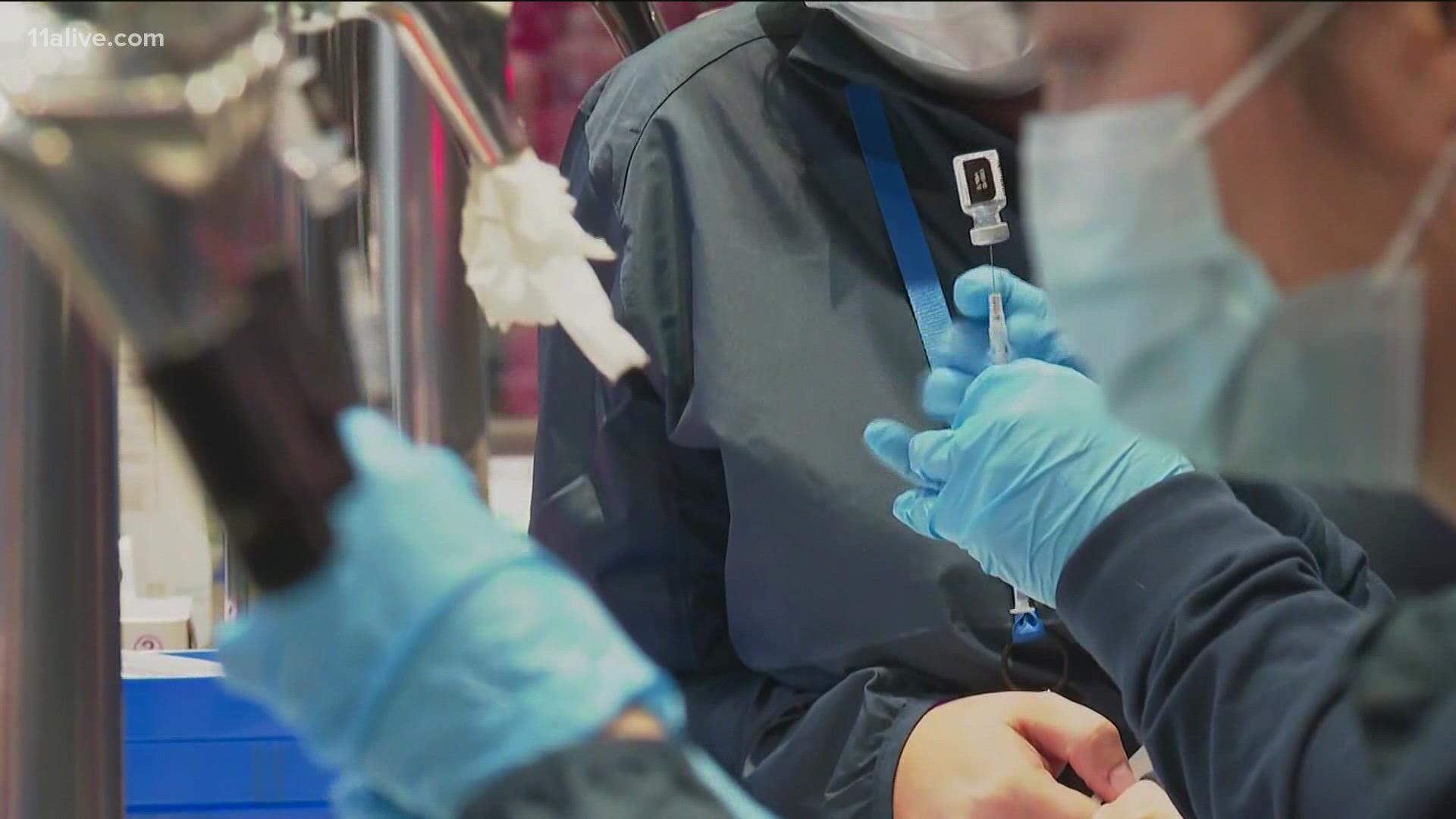ATLANTA — Following guidance from the Centers for Disease Control and Prevention, on Monday the Georgia Department of Public Health will begin offering COVID-19 booster shots to certain Georgians.
To qualify you must first have been fully vaccinated with Pfizer's COVID-19 vaccine for at least six months and then fit into one of four categories.
Dr. Carlos del Rio, an infectious disease expert with Emory University, tells 11Alive around six months is when some impact of Pfizer's shot could start to decline.
"The data that we have seen from the United States and other places is that the protection against infection goes down, but the protection against hospitalization is still pretty, pretty good," del Rio said.
That is why he added Georgians in certain recommended categories should get a booster, but in his opinion, they don't need to rush out immediately Monday morning to get the shot.
"It is not like something magical has happened where you need to get a booster shot right away," del Rio said. "The good news cases in Georgia are coming down and as cases are coming down the chances of getting exposed come down as well. So get your booster, but there isn't a rush, please don't overwhelm pharmacies, healthcare facilities, and other places."
The DPH will begin administering booster shots of Pfizer's vaccine at public health vaccination sites starting Monday and appointments for open time slots can be booked here by selecting 3rd dose registration.
Individuals in the following categories currently qualify to book an appointment:
- People 65 years and older, and residents in long-term care settings should receive a Pfizer-BioNTech booster shot at least six months after their primary two doses of the Pfizer-BioNTech shot.
- People ages 50-64 with underlying medical conditions should receive a Pfizer-BioNTech booster shot at least six months after their primary two doses of the Pfizer-BioNTech shot.
- People ages 18-49 with underlying medical conditions may receive a Pfizer-BioNTech booster shot at least six months after their primary two doses of the Pfizer-BioNTech shot based on their individual benefits and risks.
- People ages 18-64 who are at an increased risk for COVID exposure and transmission due to occupational or institutional factors may receive a Pfizer-BioNTech booster shot at least six months after their primary two doses of the Pfizer-BioNTech shot based on their individual benefits and risks.
The categories are based on CDC guidance. You can find an explanation of what the CDC qualifies as underlying medical conditions here.
"The most important booster I can think of is to get the unvaccinated, vaccinated," said del Rio. He believes the Pfizer booster is important, but not a path toward ending the pandemic.
As of Friday, 46% of eligible Georgians remained unvaccinated and another 7% still need another vaccine dose to be considered fully vaccinated.
Those numbers and the number of unvaccinated people outside of Georgia are concerning to del Rio. He said it could prolong the pandemic.
"Biggest concern I have are the millions unvaccinated not only in the United States and globally," he said. "The pandemic globally, less than 4% of the world population has received a dose of vaccine and we have to do a better job getting the vaccine to the world."

